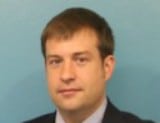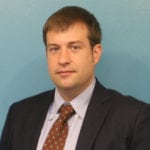What does public service mean? For some, it’s volunteering at a shelter or school once a month, or donating to a charity during the holidays. For others, it’s a year-round way of life.
Efrem Ayalew, winner of AYPF’s first-ever Samuel Halperin Youth Public Service Award, is a good example. Ayalew, who wrote the award-winning essay that demonstrated his commitment to public service and helping youth, came to the Washington area from Ethiopia when he was twelve and was forced to overcome significant language and cultural barriers in order to adjust to life in the United States.
Adapting to his new surroundings was a challenge. Ayalew’s mother, who worked full-time while raising him and his four siblings, had always stressed the importance of learning. While at school, Ayalew was faced with the pressure of fitting in with his new peers, who didn’t always see the value of school. In trying to adapt, Ayalew sometimes felt torn between two worlds, the world of his family, and that of his disengaged classmates. “It is naturally easier to flow with the current of life than to swim against it. Hence, I tried to be something I was never meant to be,” Ayelew writes in his essay.
However, Ayalew’s mother, or “Lion Mother,” as he describes her, kept the pressure on, and at school Ayalew joined the Upward Bound program, a Latin American Youth Center (LAYC) initiative that served as Ayalew’s “ah-ha” moment in terms of seeing the value of education, learning, and community service. Ayalew’s family had always emphasized the importance of learning, but the concept hadn’t become tangible yet. “Learning new stuff every day seemed nice, but the bigger picture was missing in order to connect the smaller dots.”
As part of the program, Ayalew went on college tours, spent six weeks at the George Washington University, and began to form an idea of what college life was like. This moment was instrumental for Ayalew. “I started to realize a college education was not only a dream, but also a reality I could strive for,” writes Ayalew.
After completing his degree at St. Mary’s College of Maryland, Ayalew felt drawn to public service, particularly helping young students achieve success. He began volunteering at Roosevelt High School in Washington, D.C. through the AmeriCorps program. Ayalew also started working as a Youth Development Specialist at Leckie Elementary School as part of the Fishing School in Washington, D.C., where he was a lead teacher in an afterschool enrichment program.
At the moment, Ayalew is a volunteer teacher’s assistant with the Maryland Multicultural Youth Center at Buck Lodge Middle School. He works mainly with English as Second Language (ESL) students in the 7th grade. Volunteering with ESL students has a special significance for him, as he struggled to master English when he first moved to the United States.
Going forward, Ayalew remembers what it was like for him growing up and keeps the memories close. Facing a steep language barrier and cultural divide was often hard, but his early exposure to public service and his family’s emphasis on learning saw him through. Whether it’s in teaching or youth development, Ayalew would like to work to make a difference in youth outcomes, to help young people succeed and achieve what can sometimes seem like impossible dreams of going to college or improving their lives. “A lot of times students can’t see a different reality, or a way out of their neighborhood,” said Ayalew. “I want to be able to work with kids who don’t see that side of reality.”
George Knowles is the Web Communications Associate at the American Youth Policy Forum.



